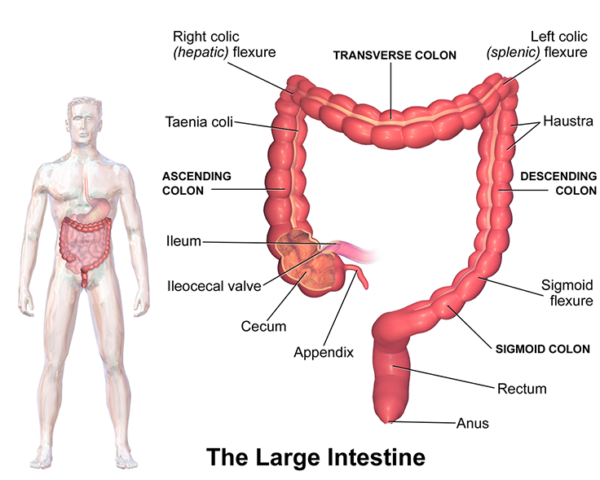Your Resources
Colorectal Cancer
Colon Cancer Treatment in Huntsville Alabama and Other Locations
Colorectal Cancer

Colorectal cancer, or colon cancer, is the third leading cause of cancer related deaths in the U.S. with rates in young adults under the age of 45 increasing annually. Early detection is key in increasing survival rates in screened patients where cancer is in the early, local stage. Call your physician and get screened today!
The following are common symptoms of colorectal cancer. If you are experiencing any of the following, please contact your primary care physician.
- A change in your bowel habits, including diarrhea or constipation or change in consistency of your stool
- Rectal bleeding or blood in your stool
- Persistent abdominal discomfort, such as cramps, gas, or pain
- A feeling that your bowel doesn’t empty completely
- Weakness or fatigue
- Unexplained weight loss
The following are associated risks with colorectal cancer:
- Age
- Being of African-American race or Ashkenazi Jewish ancestry
- Personal history of colorectal cancer or polyps
- Family history of colorectal cancer or polyps
- Inflammatory intestinal conditions
- Low fiber and high fat diets
- Type 2 Diabetes
- Obesity
- Smoking
- Heavy alcohol use
- Radiation
Regular screening is important in colon cancer, as it can prevent a polyp from becoming cancerous if caught in its early stages. Some of the screening methods look for cancer and polyps inside the colon, while other testing methods just test for the presence of cancer cells. Tests that look for polyps and cancer include sigmoidoscopies, colonoscopies, and double-contrast barium enemas. Once colon cancer has been diagnosed the patient undergoes additional tests to determine if the cancer has spread to other parts of the body. Colon cancer is separated into the following stages depending on the location and advancement of the cancer cells.
Stages of Colon Cancer
- Stage 0 – abnormal cells are present in the inner lining (mucosa) in the wall of the colon. This stage is also known as carcinoma in situ.
- Stage 1 – cancer has spread to the fibrous tissue beneath the muscle layer (submucosa) and may have spread to the muscles surrounding the colon
- Stage 2 – cancer has spread to the serosa, which is the outermost layer of the colon
- Stage 3 – cancer has spread to all the layers of the mucosa and nearby lymph nodes but has not spread to distant sites.
- Stage 4 – cancer has spread to other organs other than the colon, abdominal wall, or distant lymph nodes
Once colon cancer has been detected in your body, your oncologist may recommend one of the following options for treatment::
